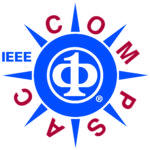WiDE 2023: The 1st IEEE International Workshop on Workflows in Distributed Environments
Technical Program
*= in-person presentation in Torino
Porting the Variant Calling Pipeline for NGS data in cloud-HPC environment*
Alberto Mulone, Sherine Awad, Davide Chiarugi and Marco Aldinucci
Towards formal model for location aware workflows*
Doriana Medic and Marco Aldinucci
WfCommons: Data Collection and Runtime Experiments using Multiple Workflow Systems*
Henri Casanova, Kyle Berney, Serge Chastel and Rafael Ferreira da Silva
A Proposal for a Continuum-aware Programming Model: From Workflows to Services Autonomously Interacting in the Compute Continuum*
Marco Aldinucci, Robert Birke, Antonio Brogi, Emanuele Carlini, Massimo Coppola, Marco Danelutto, Patrizio Dazzi, Luca Ferrucci, Stefano Forti, Hanna Kavalionak, Gabriele Mencagli, Matteo Mordacchini, Marcelo Pasin, Federica Paganelli and Massimo Torquati
The WiDE workshop aims to bring together researchers working on all aspects of distributed workflows. Managing distributed workflows is a complex task which covers a broad range of diverse tasks and their need to interoperate: design patterns and languages, orchestration tools, performance monitoring, benchmarking procedures, distributed FAIRness, end-to-end privacy and security, and many more. In the same spirit that inspired the Workflow Community Initiative, the WiDE workshop will allow researchers to share their knowledge on specific aspects of the topic and gain insights from different points of view. Plus, direct exchange of views and ideas will be further encouraged by an open discussion section at the end of the event.
Workshop theme:
Workflow models represent a powerful abstraction for designing complex applications and executing them on large-scale distributed architectures, such as HPC centers, Grid environments, Cloud infrastructures, and the Continuum. However, modeling, orchestrating, and monitoring distributed workflows poses unique challenges, which are still open research questions.
When considering data-oriented workflows, all the aspects of data management become crucial for performance optimization, privacy preservation and security. Modern programming paradigms for in-situ workflows and Big Data analysis focus on data locality: moving computation closer to the data to remove data transfer overheads and risks. More recently, the successful adoption of federated learning approaches to data analytics shifted the support for distributed environments from a scalability-related feature to an unwaivable requirement, as data cannot be moved by contract.
Besides, there are scenarios in which it is worth, or even unavoidable, to transfer data between different modules of a complex application. Integrating large-scale simulations with deep-learning workloads or quantum-based optimization processes already requires orchestrating modular applications on heterogeneous distributed environments. The HW/SW end-to-end co-design trend cannot but exacerbate heterogeneity in the following years. Flexible fault-tolerant strategies, end-to-end secure and privacy-preserving communication protocols, and location-aware provenance standards are needed to build a mature ecosystem for future workflows. Community-agreed benchmarking procedures and tools are necessary to push research and development in the coming years.
Scope of the workshop:
Topics of interest include, but are not limited to, the following:
- Benchmarking methodologies and tools for distributed workflows
- Design patterns for parallel and distributed workflows
- Distributed provenance and FAIRness in distributed workflows
- Fault-tolerant distributed workflows
- Federated and privacy-preserving workflows
- I/O orchestration for distributed workflows
- Practical application of distributed workflows
- Scheduling workflows in heterogeneous environments
- Workflows for AI and AI for workflows
- Workflows for the Convergence of HPC, Big Data and ML
- Workflows in the Computing Continuum
- Workflow models, languages and tools for heterogeneous distributed systems
The WiDE workshop promotes Open Science. Publishing Open Access data, code, and article preprints on arXiv.org, TechRxiv.org, or any not-for-profit preprint server approved by the Publication Services and Products Board (under the conditions laid down by the IEEE post-publication policies) does not in any way prevent the submission to the WiDE workshop.
Paper Templates
IEEE Paper templates are available in MS Word 2003 and LaTex. All submissions must use US 8.5×11 letter page format.
Important Dates
Main Conference/Symposium
Main conference/symposium papers due: 15 January 2023Extended to 15 February 2023
Notification: 7 April 2023
Camera-ready and registration due: 7 May 2023 Updated: 18 May 2023
Journal then Conference Submissions
Due date: April 7, 2023
Notifications: April 30, 2023
Workshops, Fast Abstract, SRS Programs
EXTENDED: Workshop papers due: 21 April 2023
UPDATED: Notifications: 7 May 2023
UPDATED: Camera-ready and registration due: Updated: 18 May 2023
Submission Link
Please submit your paper on EasyChair
IEEE Conference Publishing Policies
All submissions must adhere to IEEE Conference Publishing Policies.
IEEE Cross Check
All submission will be screened for plagiarized material through the IEEE Cross Check portal.
Workshop Organizers
Iacopo Colonnelli
Università degli Studi di Torino, Italy
Email: iacopo.colonnelli@unito.it
Daniele Lezzi
Barcelona Supercomputing Center, Spain
Email: daniele.lezzi@bsc.es
Program Committee
Robert Birke, Università degli Studi di Torino, Italy
Michael R. Crusoe, WCI, ELIXIR-NL, ELIXIR-DE, CWL Project
Valerie Hayot-Sasson, University of Chicago, IL, USA
Bruno P. Kinoshita, Barcelona Supercomputing Center, Spain
Jack Marquez, University of Tennessee, Knoxville, TN, USA
Doriana Medić, Università degli Studi di Torino, Italy
Luca Pireddu, CRS4, Italy
Raül Sirvent, Barcelona Supercomputing Center, Spain
Massimo Torquati, University of Pisa, Italy
Paolo Viviani, LINKS Foundation, Italy

